This Essay is Pointless.
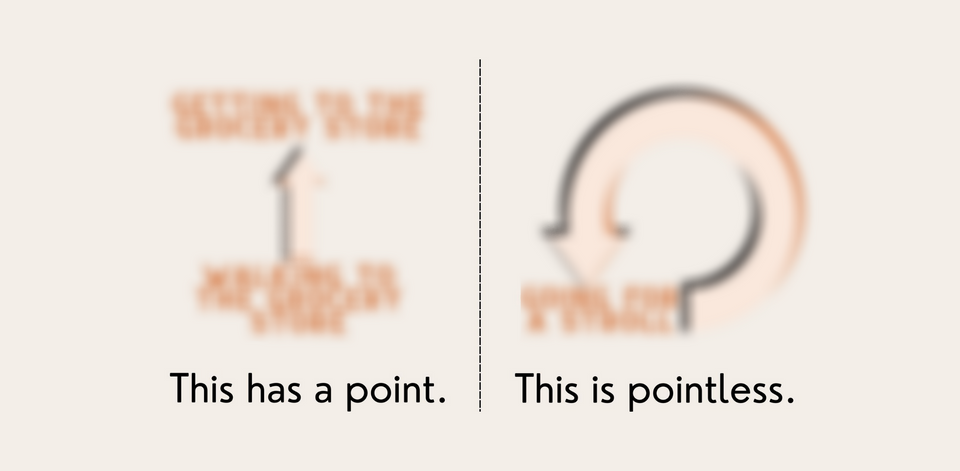
Why is a leisurely walk enjoyable, but a walk to the grocery store a hassle?
I mean, the experience of walking is basically the same: You put one foot in front of the other a bunch of times and then you end up somewhere else. So what makes the difference here? I reckon it’s the pointlessness of a walk. Let me explain.
The First Noble Truth - cornerstone of Buddhist Philosophy - is this: Life is Dukkha. This Pali word is often translated as “suffering”, but that fails to cover the whole complexity. Dukkha isn’t just the heavy painful stuff - it’s also the general unsatisfactory nature of attachment to impermanent things. The constant wanting and craving of the next thing, becoming momentarily satisfied when you get it - only to want the next thing right away.
Convinced that this next whatever is gonna bring us lasting happiness, it’s this leaning forward into experience, that 2000 years later also got a name from Western psychologists (and an essay from yours truly): The Arrival Fallacy.
But beyond that, there is another level. The stuff we have to do, fully aware that it’s not gonna bring lasting happiness. In the words of my dear friend Marina - the Admin. This isn’t just about what we call “life admin” (e.g. bank stuff & taxes) - it’s the Sunscreen Admin, the Airport Admin, Car Admin and Vacuum Admin - all those small and big repetitive hassles that come with sustaining existence. Taking out the trash? That’s Admin. Flossing? Admin. Going to the grocery store? You guessed it - Admin.
It’s quite wonderful to imagine a world where everything you do is deeply meaningful to you. But in reality, a good chunk of our life is made up of this Admin. This is pretty bad news if one is chronically unsatisfied with doing Admin - because that just leaves a good chunk of their lives unsatisfactory. Dukkha indeed.
Wouldn’t it be an absolute superpower to enjoy the Admin? You’re gonna get a lot of it, that’s for sure. So humour me this, just for the sake of argument: The Antidote is Pointlessness. How?
Well, let’s define “having a point” first. It's in the name: to “have a point” implies an action points to something other than itself - that’s the point. In our example, the point of “walking to the grocery store” is “getting to the grocery store”. Simple enough, right?
But looking at some of life’s greatest joys, they rarely have a point. Take some masterpiece sonata, for example. The best orchestra isn’t the one that gets to the last note the fastest - they just play the piece and the tempo is part of the expression. Or take dancing: Do you aim to get to a specific point on the dance floor as fast as possible? No, you just dance, moving at whatever speed you feel like.
So what about our leisurely stroll? The point can’t be the destination - that’s usually the place you started, and the best way to get there is to not walk away in the first place. The point of the stroll, then, is the stroll. Like the sonata & the dance, it’s self-referential. In other words: It doesn’t point to anything else. And in that, I’d argue it’s pointless.
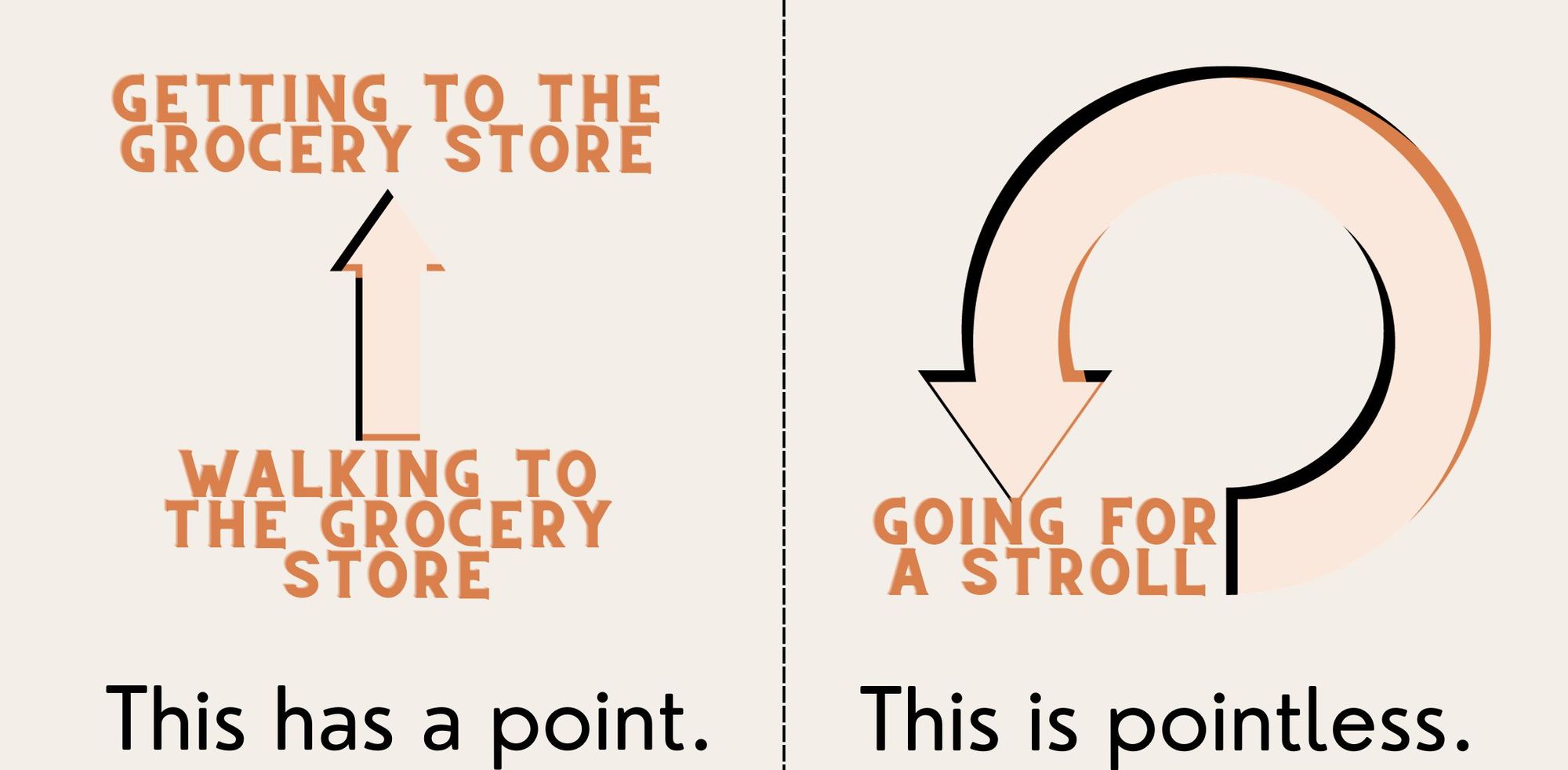
Now, this doesn’t make it any less valuable. Going for a stroll is a wonderful thing, as is Music & Dance. If anything, it seems to be more enjoyable than its point-having counterpart - the walk to the grocery store. Still, isn’t our grocery run just a stroll (with a shopping intermezzo) after which you also end up having food at home? So how exactly does the utility of an action - a literal added benefit - make it less enjoyable?
The answer is called the “Overjustification Effect”. You see, as much as we like to believe that we know our motivations, the reasoning that comes up in the conscious mind turns out to be a good guess made after the fact. In my piece on Intuition I go deeper into the research surrounding this, but for now, this is the important point: The central nervous system made this decision in an unknowable black box and then sent its PR department to come up with a plausible reason for it afterwards.
In their search for plausible reasons, the PR department also likes to use external influences to figure out the causes of our decisions. A big one is the expected outcome - What do we get from this action? In a now-classic 1972 study, Edward Deci compared two groups tasked with completing puzzles. One got paid, one didn't. What he found was this:
In this way, an extrinsic reward (-> one that is outside of the action itself) for an action ironically crowds out the intrinsic motivation (-> doing the action for its own sake). Or, simpler: Because they got paid, the PR department now assumed the reason they did it was payment. For those without reward, on the other hand, the PR department just assumed they do it because it’s fun - so why not keep going in the breaks?
Now let’s apply the same to our stroll. The point of the stroll is to go for a stroll - you’re not getting anything else out of it, so your PR department can happily assume that you’re doing it for the pure, pointless joy of the stroll. But add a point to it - the ominous Admin of groceries - and all of a sudden, that joyous stroll turns into a hassle, a means to an end.
This difference in attitude shows up in our attention. When walking pointlessly, our attention tends to be grounded in whatever’s going on around us. We might even be off in thoughts somewhere, letting our minds go for the same pointless stroll we’re on. But at least in my experience, the attention on a “pointful” walk tends to lay firmly with the point. Tensing up about getting there quicker (because apparently, we don’t wanna be here intrinsically), what we’ll do when this hassle is over, how annoying the Admin is.
It’s the very same experience of walking, just viewed in a very different light. Instead of being where your feet are, you’re off in annoyance. At least until you realise that this too is beautifully pointless. Hear me out:
While there might absolutely be a mediating utility you can point to, all Admin is ultimately pointless. Doing the dishes only leads to you doing the dishes again. Vacuuming the house is a very temporary fix to the second law of thermodynamics (”When matter moves freely, it always moves toward disorder”). And I think you all know you’ll find yourselves on the way to the grocery store again very shortly.
Now, I’m not arguing for throwing away your dishes and replacing your couch with a comfy ocean of dust - but I’ve found that, in a very funky & counterintuitive way, reminding myself of the ultimate pointlessness of the Admin allows me to reinject some joy into it. It might just be that I find the idea of pointlessly doing the dishes inherently funny and that makes me smirk, but I think the actual mechanism is another:
I’m sorry to bother you with a whole new study this late into the essay, but this one really ties it all together. In this 2010 Harvard Study, Researchers randomly pinged participants on their phones throughout their normal day-to-day, asking three simple questions:
- How are you feeling?
- What are you doing?
- Are you thinking about something other than what you’re currently doing?
My working theory is that reminding myself of its pointlessness does the same for Admin. If I don’t have a point to lean forward into, I can settle happily into my Grocery Admin. I might even be able to go for a leisurely stroll that just so happens to pass by a supermarket. Because the reality is - as silly as it sounds - no two walks to the grocery store will ever be the same.
All it takes is a little attention.
“Happiness is not how many things you do, but how well you do them. More is not better. Happiness is not experiencing something else; it’s continually experiencing what you already have in new and different ways.” - Brianna West

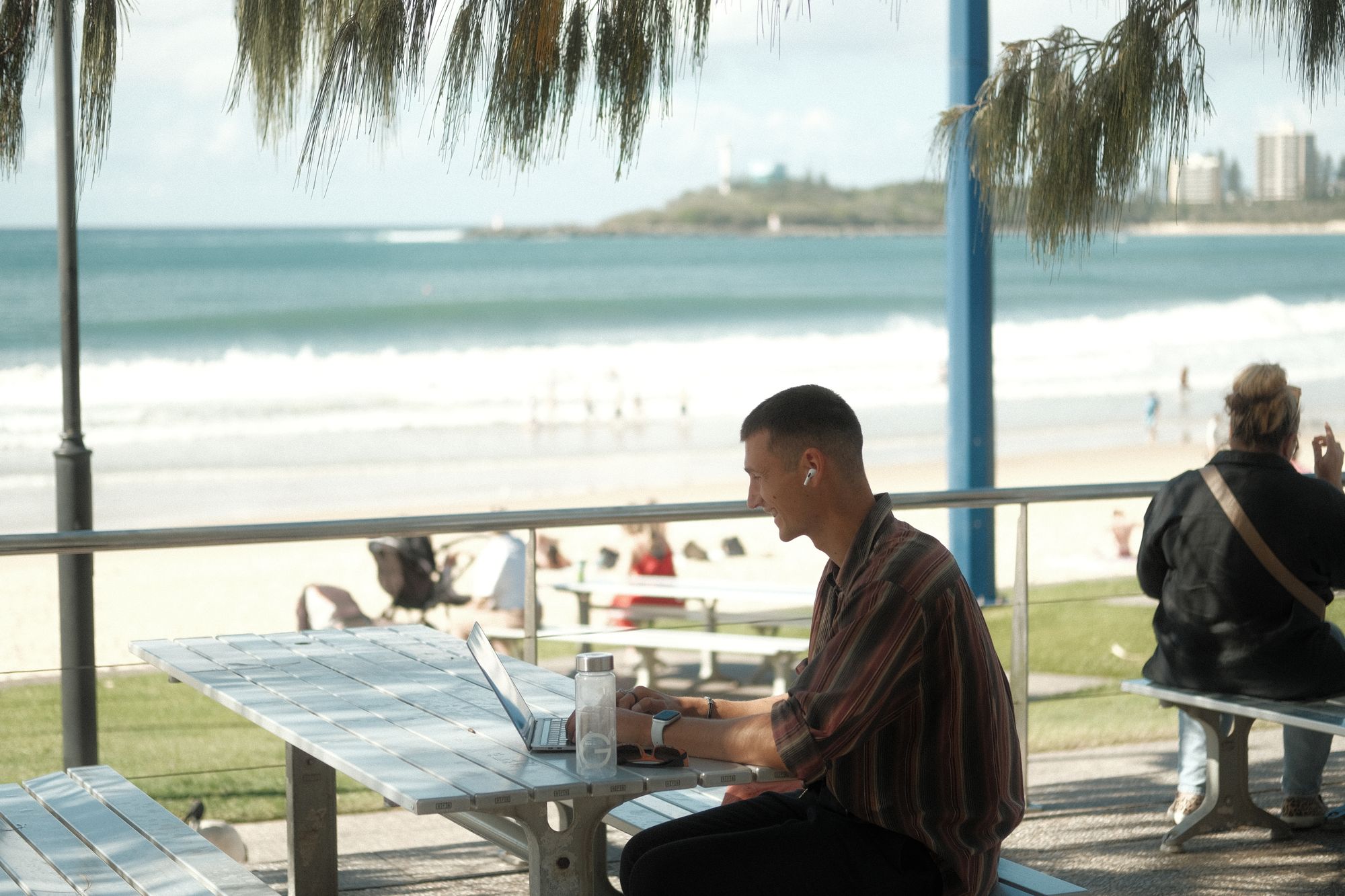
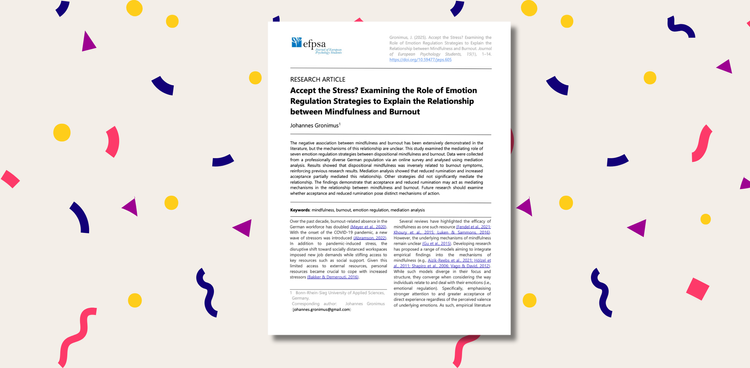
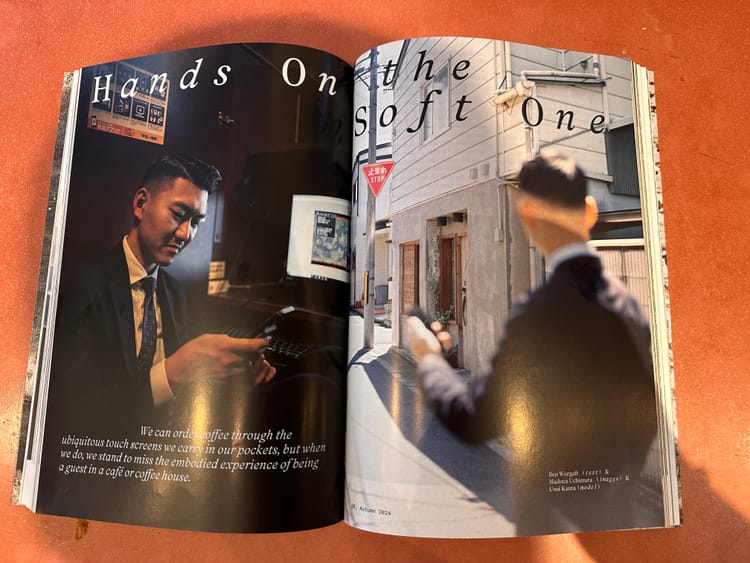
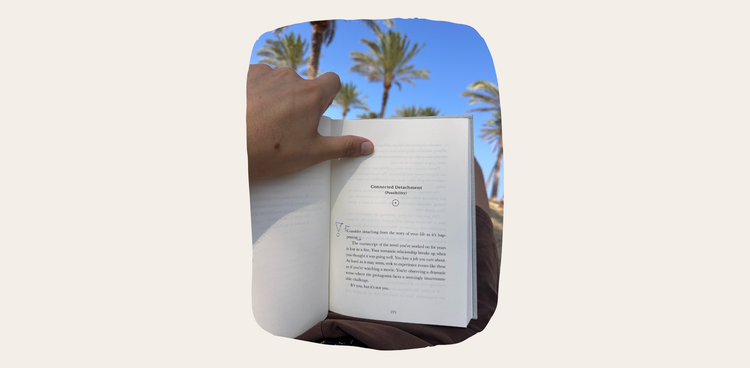
Comments ()